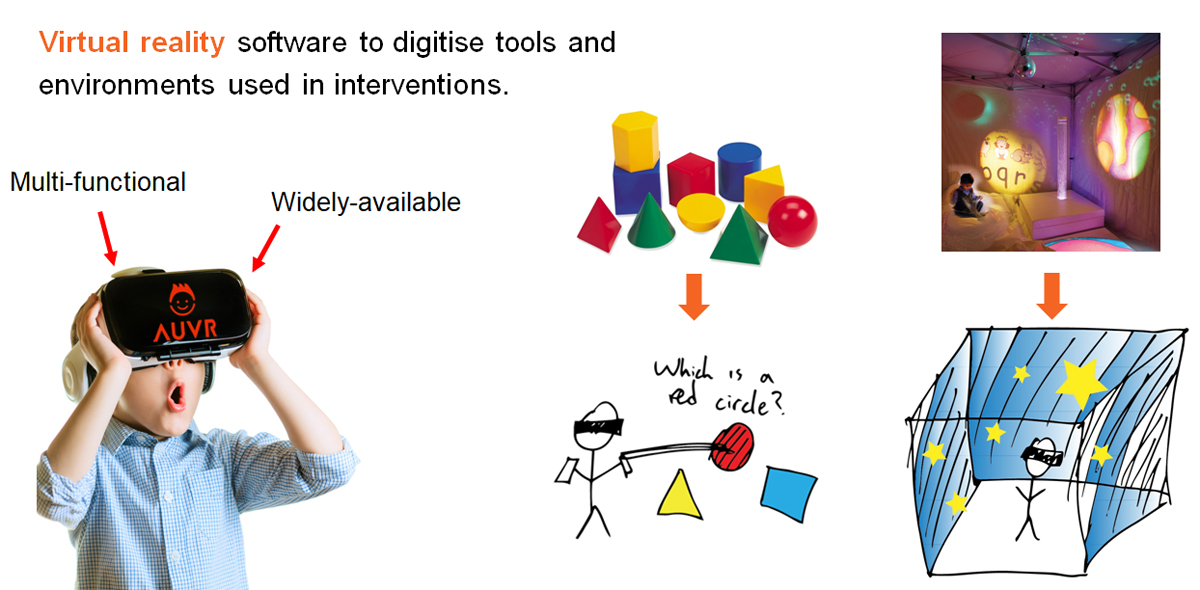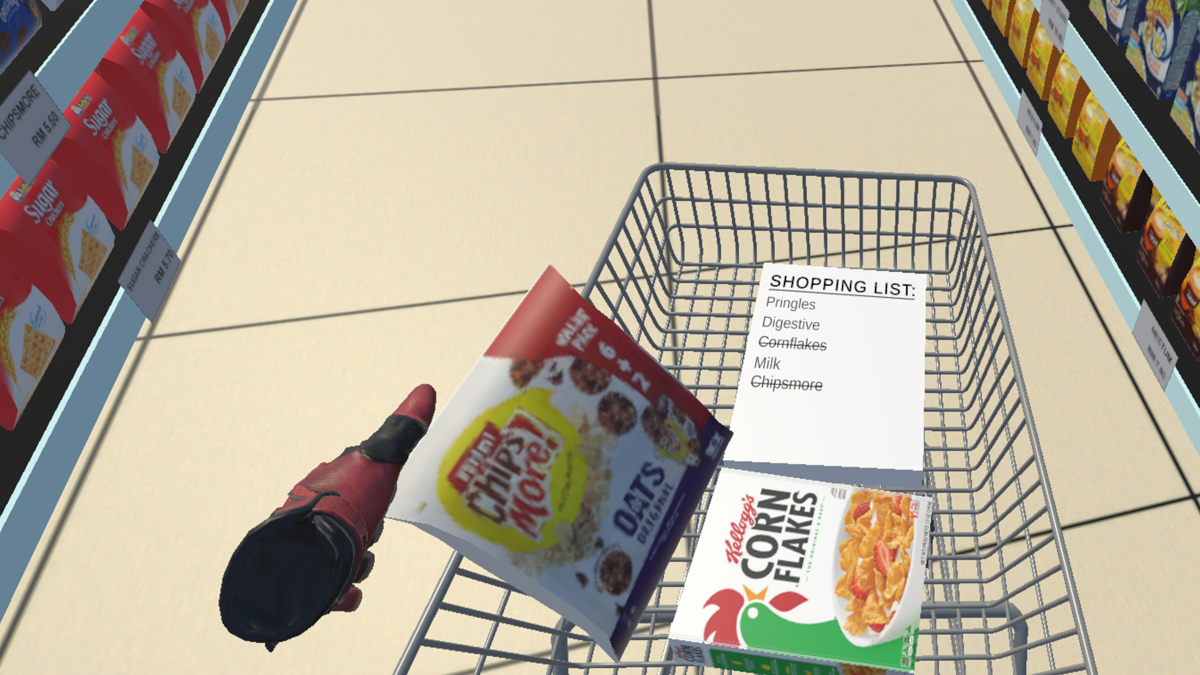I have tried for many years to work on a technological solution to assist with the learning process by autistic children. The desire to help emerged when I was asked to visit Dato’ Susie See’s autism centre, Lions REACh, in Penang. Dato’ Susie and her team are incredibly passionate in doing incredible work to help those afflicted by the autism condition in Penang.
Research has shown that early intervention and training does make a difference in improving an autistic child’s learning. However, this can be quite costly, especially in Malaysia where there is a shortage of trained specialists and resources. The solution I proposed was to develop a VR training software to simulate training environments to help autistic children learn better. The main idea is to rapidly change the learning environment through software which may dramatically reduce the costs of delivering training.


I manage to secure an initial grant worth £6,000 from a local charity in Cambridge, Centre for Global Equality (CGE), which enabled us to conduct preliminary testing in Malaysia to test how well autistic children will respond to VR. The initial trials reported promising results which eventually led me to secure further grant funding from Research England as part of the Global Challenges Research Fund (GCRF). I was given a grant worth £77,732.
I also formed a team consisting of other PhD students to participate in entrepreneurship competitions. We managed to win the main prize of numerous competitions such as the Churchill Enterprise Competition and the Downing Enterprise Competition. All in, we won a total of £9,000 just from competitions.
- An excerpt from the introduction section of our report:
- Autism is a lifelong developmental disability. 1-2% of the global population of children are identified with autism spectrum disorder which impedes the way they think, communicate, socialize, and learn. Interventions have shown to be effective in improving their condition. However, conventional interventions are very expensive as it requires many contact hours with trained specialists and specialized tools (e.g. multisensory rooms) which can cost £2,000-4,000 per month for 4 years in developed countries such as the UK. In the US, the market for interventions is currently valued at £1.32 billion with an annual growth of %3.9.
-
In developing countries such as Malaysia, this problem is exacerbated by the fact that there is a severe shortage of experts and resources to provide interventions. The estimated number of autistic children in Malaysia is around 80,000. Only 1500 (<2%) of them are catered by all 20 autism centres at any given time. Families living far from the autism centres are further disadvantaged and do not have access to interventions. Autism affects all families, regardless of income and social status. Parents struggle to balance the needs of their children, busy therapy schedules, and perpetual financial worries. Due to the long waiting lists of public services and prohibitive cost for private care, many parents have given up on any therapy or intervention.
-
Our proposed solution is to develop a reconfigurable and smart software platform for off-the-shelf virtual reality (VR) headsets to digitize the tools and environments used in interventions.
-
This has the potential to lower the costs of delivering interventions and to improve accessibility. The functionality of the virtual environment can also be easily tuned and customised using software at no additional costs. The technology can reduce contact hours with specialists and potentially allow for the interventions to be administered at the comfort of their homes for autistic children showing progress in their intervention. With the rapid development of VR technology backed by large companies like Google and Facebook, the cost of hardware is dropping, and the quality is improving. Our software-based solution will leverage this VR hardware trajectory to benefit a large proportion of the population in both developing and developed countries.
In 2021, I managed to complete development of a prototype to simulate a supermarket shopping experience. The prototype was developed using Unity for the HTC Vive Pro. A crude cirtual recreation of AEON supermarket in Queensbay was created. The user will have to go into the virtual supermarket to look for items from a randomly-generated shopping list.







